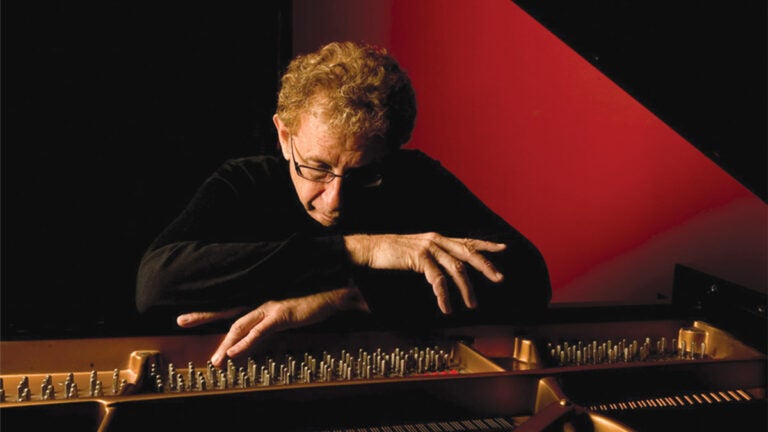
Q&A: Pianist Daniel Pollack Returns to Russia as Arts Advocate
The acclaimed pianist reflects on his role as an honorary cultural ambassador.
When Daniel Pollack recently traveled to Russia, it was a sort of homecoming. The longtime faculty member at the USC Thornton School of Music views himself as a “musical grandchild of the great Russian musical heritage.” After all, Pollack earned his fame as a 23-year-old American pianist on the Moscow stage during the Cold War. His legendary 1958 performance of Tchaikovsky’s Piano Concerto No. 1 garnered him a cherished competition prize alongside American star-to-be Van Cliburn–and endeared him to the Russian people in a musical love affair that continues today.
In December 2016, just in time for the 175th anniversary of Tchaikovsky’s birth, Pollack served as an honorary ambassador of culture at the St. Petersburg International Cultural Forum, where he spoke about the future of the arts and gave a sold-out recital to close the event. Pollack recently spoke with writer Robert Bradford about the role of music and culture in bringing people together during times of strained relations.
?
You first went to Russia in 1958 for the Tchaikovsky competition. Seventeen tour visits followed. What were the most dramatic changes you saw when you were there recently?
I love the Russian people—their heart and their soul. Today the Russia I love is there, but you have to look for it. In the drab days of my first visit in 1958, everything was kind of dark and dingy in the dress of the people and their mood. There is still a lot of difficulty in the people today. The rich are super rich, somewhat like in our country, and the middle class is struggling. But I see a vast improvement over the years. I have a lot of friends in Russia today, not just musicians but people in many walks of life. Thanks to social media and cultural exchanges, we know a lot more about each other. Maybe not enough still, but more.
?
How can music bridge the serious political and philosophical divides between Russia and the United States?
This has been happening for decades. When I was in Russia playing at the first Tchaikovsky competition in 1958, I was doing more than performing—I was an ambassador between the two countries. Those of us who have had the privilege of bridging these barriers are ahead of the diplomatic exchanges. My language is music, and music is an international language. I don’t have to speak Russian when I perform to reach the audience. It’s about human-to-human contact. It’s a troika—it’s the composer, it’s the performer and it’s the audience.
?
You met Russian President Vladimir Putin at the forum. How did that come about?
I was selected to meet with him and other dignitaries at the forum. Putin spoke to the group about the importance of cultural exchanges. And then he went around the room and clinked glasses with everybody. He came up to me and said, in English, “Tell me about yourself.” I told him my parents were born here [in Russia], that I was a prizewinner in the first Tchaikovsky competition, that my piano teacher from Juilliard was born here and that I toured in Russia. His answer was, “Then welcome back to your second home.” That’s all he said, but in that was a world of expression.
